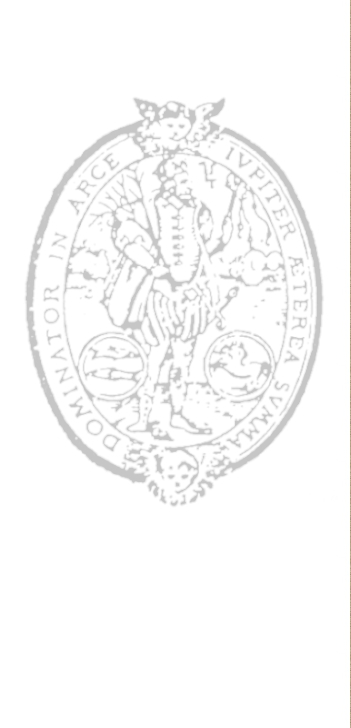


|
Saturne en Balance I, 16 1569 Faulx à l'estang ioinct vers le Sagittaire, En son haut AVGE de l'exaltation, Peste, famine, mort de main militaire, Le siecle approche de renouation. "AUGE" Auge est un terme d'astronomie, Nom qu'on donnait autrefois à ce qu'on nomme aujourd'hui apsides, c'est-à -dire les points où une planète se trouve à sa plus grande ou à sa plus petite distance du soleil. Esp. auge, ital. auge. De aoudj, sommet, point culminant, que les astronomes arabes emploient dans le même sens [ou du latin "augeo" j'augmente] (L. Marcel Devic, Dictionnaire étymologique des mots français d'origine orientale arabe, persan, turc, hébreu, malis, 1876 - books.google.fr). Lien avec le quatrain I, 62 - 1603 Un siècle est une période de cent années. Le mot vient du latin saeculum, qui signifiait «race», «génération». Il a ensuite indiqué la durée d'une génération humaine et faisait 33 ans 4 mois. Très rapidement, le siècle a désigné une durée de 100 ans (fr.wikipedia.org - Siècle). Ainsi, à raison de trois générations par siècle, la durée d'une génération, d'après Hérodote, était de 33 ans et 4 mois (Journal de la Société de statistique de Paris, Volumes 23 à 25, 1882 - books.google.fr, Revue des études juives, Volumes 93 à 94, 1932 - books.google.fr). Il y a 34 ans, une génération, entre le quatrain I, 16 - 1569 et le I, 62 - 1603, qui comporte les mots "siecle" et "cicle de Latone". L'"estang" pourrait renvoyer à celui des grenouilles lyciennes de Latone et à celui où se passe sa rencontre avec Jupiter. Puisqu'au quatrain I, 62 Latone est rapprochée de la reine Elisabeth Ière
The rebellion of the Northern Earls in 1569 was the first in a series of Catholic plots which attempted to replace Queen Elizabeth with her cousin, Mary, Queen of Scots
(R. Paul Evans, WJEC Eduqas GCSE History: The Elizabethan Age, 1558-1603, 2016
- books.google.fr). In 1569, however, the north of England witnessed a curiously anachronistic uprising, as the retainers of some of the great old aristocratic families rallied once again to their feudal colours,
this time in defence of the old religion. The crown responded with a second printed homily of obedience, another illustration of its faith in the preaching of officially sanctioned sermons to restore calm in the
countryside. The rising of the northern earls had its roots in a court alliance, drawn from both sides of the confessional divide, to neutralize Mary queen of Scots by marrying her to the Protestant duke of
Norfolk. The plan foundered on the rocks of Elizabeth's implacable opposition, at which point the earl of Leicester bailed out. [...]
Like the 'Exhortacion to Obedience' that had preceded it, the Homelie of 1570 was a weighty piece of ecclesiastical propaganda. It taught the lesson
that 'obedience is the principal vertue of all vertues,
and in deede the very roote of all vertues, and the cause of all felicitie' by way of Romans 13, the rebellion of Lucifer and Adam, and a wide array of Old Testament and classical examples Prayer is the only
solace held up to those suffering under oppressive or tyrannical rule, whereas the bedfellows of rebellion are plague and death
(J.P.D. Cooper, O Lorde save the kyng: Tudor royal propaganda and the power of prayer, Authority and Consent in Tudor England: Essays Presented to C.S.L. Davies, 2021
- books.google.fr,
Henri Hallam, Histoire constitutionnelle d'Angleterre, 1828
- books.google.fr). A. D. 1569 the plague prevailed generally throughout England. Except in the metropolis, this outbreak was not very malignant. In London its
devastations were considerable, and stringent measures were taken to check
its diffusion. Among other means, it was ordered that no idle persons should be allowed to stroll about, lest they should convey the infection into the more healthy parts of the city
(John Netten Radcliffe, The Pestilence in England : an Historical Sketch, 1852
- books.google.fr). Acrostiche : FEPL
Feple : faible
(Frédéric Mistral, Lou tresor dou Felibrige ou Dictionnaire provencal-francais embrassant les divers dialects de la langue d'oc moderne, 1878
- books.google.fr). Le duc d'Albe exprimait en outre le peu de confiance que lui inspirait le duc de Norfolk, qu'il regardait comme un homme faible et sans courage
(Correspondance de Philippe II), et les doutes qu'il éprouvait sur la prudence et la capacité de don Gueran de Espes, ambassadeur de Sa Majesté à Londres
(J. Lothrop Motley, Histoire de la fondation de la République des Provinces-Unies, Tome 3, 1859
- books.google.fr). |